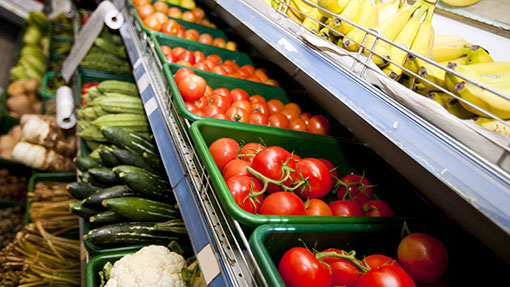NFU concern at deepening price war

The NFU has voiced concern about farmgate returns after a Farmers Weekly survey showed how far major retailers had cut prices to compete with discount retailers.
Tesco, Sainsbury’s and Morrisons have all lost market share to the discounters Aldi and Lidl, according to figures released by analyst Kantar WorldPanel, on 7 May (see table 1). Of the big four, only Asda has held its ground.
Meanwhile, both of the low-cost food retailers have seen market share rise. Aldi’s sales growth rate at 36.1% is a record for the retailer and Lidl’s 20.9% growth is its highest since August 2004. The majors have hit back by cutting the cost of hundreds of product lines.
The Farmers Weekly survey of a basket of six basic products at the key retailers (see table 2) shows how the price war is staring to bite. Remarkably, the discounters are no longer the cheapest, with Asda and Tesco offering a lower-cost basket of goods than Aldi and Lidl.
| Tabel 1: Market share | ||
|---|---|---|
| Market share (%) | Change (%) | |
| Aldi | 4.7 | +36.1 |
| Asda | 17.3 | +2 |
| Lidl | 3.5 | +20.9 |
| Morrisons | 11 | -3.6 |
| Sainsbury’s | 16.6 | -0.3 |
| Tesco | 28.7 | -2.4 |
| Source: Kantar WorldPanel | ||
“Playing the low-cost retailers at their own game is a dangerous and unsustainable tactic for the big four to take,” Mr Hudson said.
The discount stores have an entirely different business model. They stock fewer lines and their target margin is much lower at about 20%, he explained.
By comparison the big four retailers need a far greater margin to cover their much greater overheads and profit targets.
“Slashing the retail price begs the question, where will they find their margins?” said Mr Hudson.
“We fear the answer is that supermarkets will be forced to cut the price they pay to farmer suppliers and we are growing increasingly concerned,” he added.
Mr Hudson echoed the sentiments of union president Meurig Raymond, who tackled the supermarkets at the annual NFU conference in February.
“The president said the price war undermined the public perception of food production and price cuts risked undervaluing the hard work of British farmers.
“We want to see decisions on pricing that ensure the longer-term sustainability of food production.
“And we need proper returns, enabling growth and investment in the raw material production so we are able to innovate and provide choice to meet future consumer demand.”
Farmers Weekly checked the prices of six key products at the big four retailers and the two key discounters Aldi and Lidl (see table 2).
While Morrisons and Sainsbury’s remain higher, Tesco’s and Asda’s baskets of goods proved to be the lowest overall.
| Table 2: Lowest prices for products found at six retailers | |||||||
|---|---|---|---|---|---|---|---|
| Milk (£/litre) | Lamb chops (£/kg) | Diced beef (£/kg) | Chicken breast (£/kg) | White spuds (£/2.5kg) | Pork shoulder joint (£/kg) | Total cost of basket (£) | |
| Aldi | 0.41 | 10.76 | 7.13 | 6.39 | 0.75 | 2.89 | 28.33 |
| Asda | 0.43 | 10.00 | 6.29 | 6.80 | 0.69 | 3.00 | 27.21 |
| Lidl | 0.42 | 9.97 | 7.15 | 6.39 | 0.89 | 3.49 | 28.31 |
| Morrisons | 0.42 | 14.99 | 8.89 | 6.47 | 0.80 | 2.99 | 34.56 |
| Sainsbury’s | 0.43 | 10.42 | 6.98 | 7.69 | 0.80 | 3.29 | 29.61 |
| Tesco | 0.44 | 10.00 | 7.23 | 5.48 | 0.80 | 3.29 | 27.24 |
